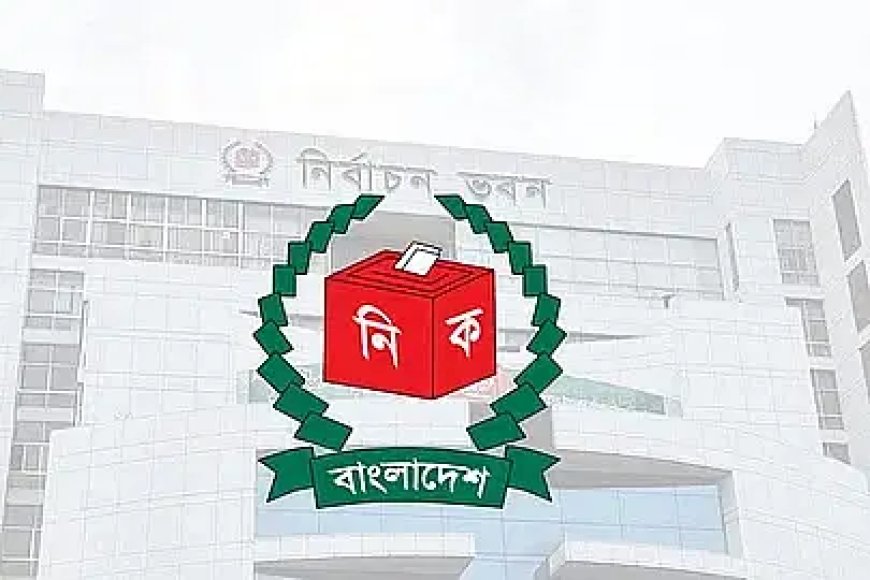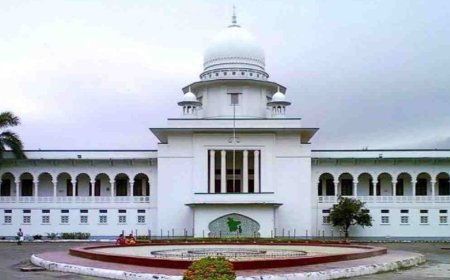A proposed law aims to bar individuals implicated in disappearances and genocide from participating in elections
A proposed law aims to bar individuals implicated in disappearances and genocide from participating in elections

Electoral Reform Commission Drafting Law to Disqualify Human Rights Violators from Elections
The Electoral Reform Commission is preparing a draft law that would disqualify individuals accused of grave human rights violations from participating in elections.
The proposed legislation seeks to bar those accused of crimes against humanity—such as extrajudicial killings, genocide, enforced disappearances, and inhumane torture—from contesting national parliamentary elections. Sources within the commission have confirmed this proposal, which is outlined in their summary of recommendations for electoral system reforms. The draft is expected to be finalized and submitted to the government by 31 January.
If enacted, this law could disqualify figures like former Prime Minister Sheikh Hasina, who was ousted in a mass uprising in July, as well as members of her cabinet and senior leaders of her party, from standing in future elections.
Concerns Over Potential Misuse
Legal experts have expressed concerns about the potential misuse of such a law. They warn that disqualifying individuals based solely on accusations could lead to exploitation. Under the current legal framework, individuals can only be disqualified from elections after a conviction.
The constitution presently disqualifies candidates sentenced to at least two years in prison for crimes involving moral turpitude until five years after their release. Additional disqualifications apply to those convicted under the Bangladesh Collaborators (Special Tribunal) Order of 1972 or other relevant laws. However, individuals convicted in lower courts can contest elections if they appeal to higher courts.
Rationale for Reform
The Reform Commission argues that a democratic transition after an authoritarian regime requires stricter measures to prevent individuals accused of severe crimes from participating in politics. They believe this approach is necessary to hold perpetrators accountable and heal the wounds inflicted by past regimes.
To address this gap, the draft law proposes disqualifying individuals formally accused of crimes against humanity. If the International Crimes Tribunal or the Commission on Disappearances finds credible evidence, the accused would be barred from elections without waiting for a court verdict.
The law may also disqualify individuals under investigation by the Anti-Corruption Commission (ACC) for serious corruption or money laundering. However, this provision is still under review, and the final law may limit disqualification to those formally convicted.
Safeguards and Expert Input
The commission acknowledges concerns about fairness in disqualifying individuals based solely on accusations. Domestic and international legal experts have been consulted, and the consensus is that charges must be based on credible evidence from preliminary investigations.
Badiul Alam Majumder, head of the commission, emphasized that crimes such as genocide, enforced disappearances, and severe corruption warrant strict accountability measures. The commission intends to include these provisions in the draft law for government enactment.
Implications for Sheikh Hasina and Others
If implemented, the law could disqualify Sheikh Hasina, her cabinet, and senior Awami League leaders. Two cases have already been filed against her in the International Crimes Tribunal, with investigations underway against other party members. If charge sheets are filed and the law takes effect, these individuals would be barred from elections.
The Electoral Reform Commission, established on 3 October, aims to reform the electoral system and reduce corruption and abuse of power in politics. Its key proposals include barring fugitive defendants and disqualifying individuals implicated in serious crimes under special laws.
While the government has the authority to enact such legislation, retired Justice MA Matin cautioned that disqualifying individuals without court convictions could raise legal and ethical concerns.
What's Your Reaction?





















































































